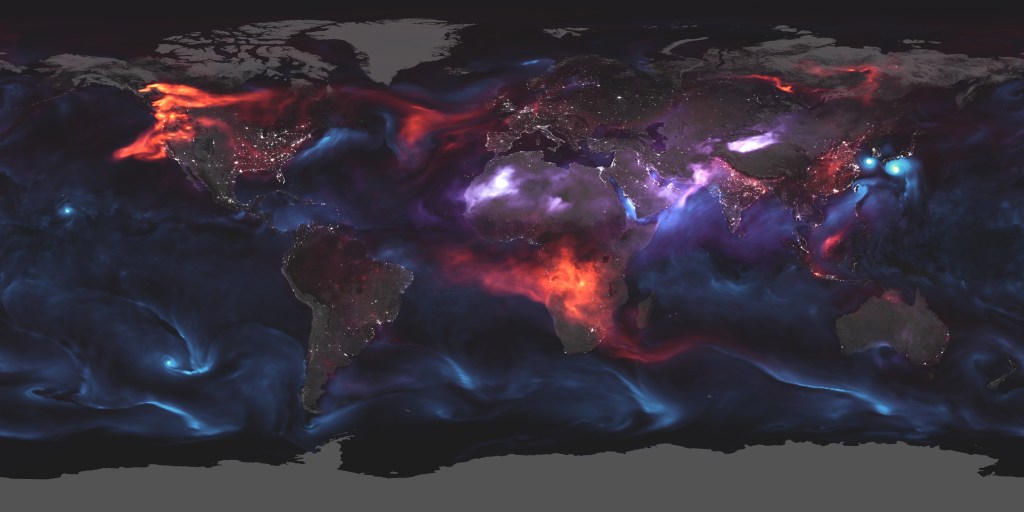United States embassies and consulates, along with American citizens traveling and living abroad, now have a powerful tool to protect against polluted air, thanks to a collaboration between NASA and the U.S. State Department.
Since 2020, ZephAir has provided real-time air quality data for about 75 U.S. diplomatic posts. Now, the public tool includes three-day air quality forecasts for PM2.5, a type of fine particulate matter, for all the approximately 270 U.S. embassies and consulates worldwide. These tiny particles, much smaller than a grain of sand, can penetrate deep into the lungs and enter the bloodstream, causing respiratory and cardiovascular problems.
Aerosols are tiny airborne particles that come from both natural sources, like dust, volcanic ash, and sea spray, and from human activities, such as burning fossil fuels. PM2.5 refers to particles or droplets that are 2.5 micrometers or smaller in diameter — about 30 times smaller than the width of a human hair.


